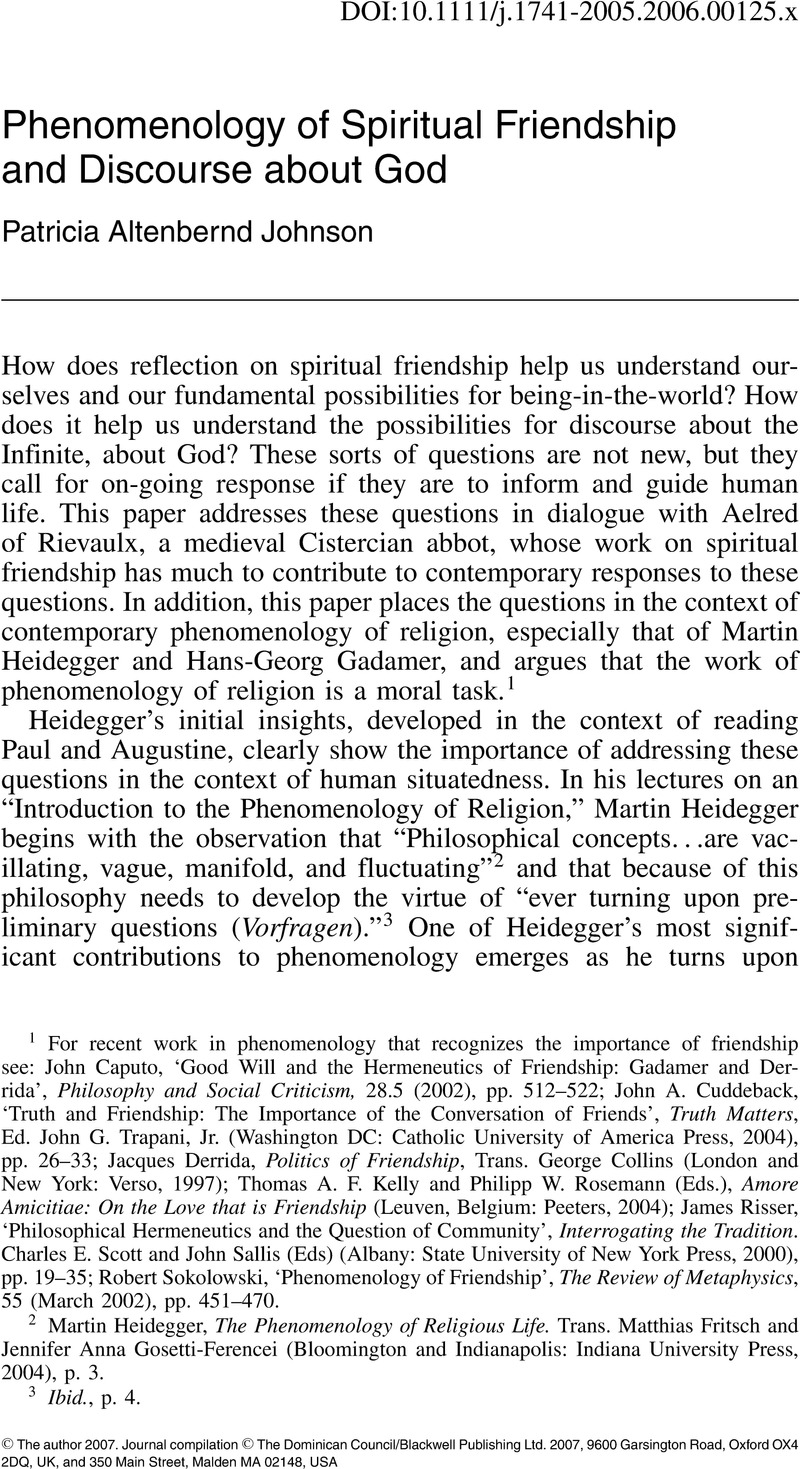No CrossRef data available.
Published online by Cambridge University Press: 01 January 2024

1 For recent work in phenomenology that recognizes the importance of friendship see: John Caputo, ‘Good Will and the Hermeneutics of Friendship: Gadamer and Derrida’, Philosophy and Social Criticism, 28.5 (2002), pp. 512–522CrossRefGoogle Scholar; Cuddeback, John A., ‘Truth and Friendship: The Importance of the Conversation of Friends’, Truth Matters, Ed. Trapani, John G. Jr. (Washington DC: Catholic University of America Press, 2004), pp. 26–33Google Scholar; Derrida, Jacques, Politics of Friendship, Trans. Collins, George (London and New York: Verso, 1997)Google Scholar; Kelly, Thomas A. F. and Rosemann, Philipp W. (Eds.), Amore Amicitiae: On the Love that is Friendship (Leuven, Belgium: Peeters, 2004)Google Scholar; Risser, James, ‘Philosophical Hermeneutics and the Question of Community’, Interrogating the Tradition. Scott, Charles E. and Sallis, John (Eds) (Albany: State University of New York Press, 2000), pp. 19–35Google Scholar; Sokolowski, Robert, ‘Phenomenology of Friendship’, The Review of Metaphysics, 55 (March 2002), pp. 451–470Google Scholar.
2 Heidegger, Martin, The Phenomenology of Religious Life. Trans. Fritsch, Matthias and Gosetti‐Ferencei, Jennifer Anna (Bloomington and Indianapolis: Indiana University Press, 2004), p. 3Google Scholar.
3 Ibid., p. 4.
4 Ibid., pp. 25–26
5 Gadamer, Hans‐Georg, ‘Friendship and Self‐Knowledge: Reflections on the Role of Friendship in Greek Ethics’, Hermeneutics, Religion, and Ethics, Trans. Weinsheimer, Joel (New Haven: Yale University Press, 1999), pp. 128–141Google Scholar
6 Ibid., p.131.
7 There are two English translations of Aelred's work. Aelred of Rievaulx., Spiritual Friendship, Trans. Laker, Mary Eugenia, SSND (Washington, D. C.: Cistercian Publications Consortium Press, 1974)Google Scholar and Trans. Mark F. Williams (London and Toronto: Associated University Presses, 1994). This paper uses the Laker translation. References are given in the text by section and then paragraph number.
8 The reference to Cicero is De Amicitia, 20. Williams uses the following translation of Cicero “Friendship is agreement on both human and divine affairs, combined with goodwill and mutual esteem.” Laker's translation provides the Christian presuppositions for interpretation that are part of Aelred's position.
9 Sokolowski, p. 462.
10 Gadamer, p. 140.
11 Marcel, Gabriel. The Philosophy of Existentialism (New York: Citadel Press, 2002Google Scholar [1956, 1984 Philosophical Library]), p. 14.